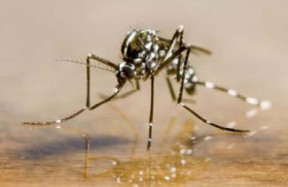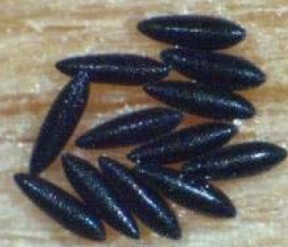It’s another hot summer, and it is no surprise we’re seeing increasing reports about West Nile virus activity and other public health concerns. This month, we’re highlighting the threat of the invasive Asian tiger mosquito. For our feature, we look at how the city of Burbank is doing its part to fight the spread of mosquitoes and West Nile virus by targeting green pools
| Spotlight – 5 Facts You May Not Know about the Asian Tiger Mosquito | |
Since their resurgence in South El Monte in 2011, the District has been raising awareness among residents to prevent Asian tiger mosquitoes from making Los Angeles County their new home. Do you know the facts about these invasive species? Here are some facts you may not know about this mosquito:
1. They are invasive — In 2001, they were discovered in shipments of lucky bamboo to California. They are native to Southeast Asia, but have made states such as Hawaii, Texas and Florida their permanent homes.
2. They bite during the day — Unlike the mosquitoes we know (but don’t love!), these pests are day-biters. This means they are actively feeding during your lunchtime BBQ or while you’re having a lazy day at the park.
3. They are very aggressive — Think you can swat these pests away with a wave of your hand? Not so! Many people may find them circling around their legs as they walk through long grass.
4. Their eggs can last for years – Mosquitoes native to Los Angeles County lay egg rafts that float on top of the water. However, Asian tiger mosquitoes lay their eggs along the water’s edge on surfaces like buckets. Even if you throw out the water, the eggs stuck inside remain viable for years!
5. There’s still hope! –Removing standing water and wearing insect repellent containing DEET are still effective. The District’s services are also here for you and your neighborhood. If you notice daytime biting and mosquito problems in your area, give us a call at 562-944-9656 or submit a service request HERE. | |
| Community Buzz: Burbank Eyes Green Pools | |

Burbank residents can rest assured that their city is targeting dirty, green pools in their neighborhood. If left stagnant, green pools can breed thousands of biting mosquitoes within five days — possibly spreading West Nile virus further into the community.
To clamp down on this public health threat, the City of Burbank worked with GLACVCD and conducted a green pool aerial inspection in June.
This project included a collaborative effort from the Community Development Department, Burbank Police Department, Water and Power Department – Water Treatment Plant, and GLACVCD.
From performing on-site visits to aerial observations, city officials worked quickly to cover 19 square miles. After collecting a list of offending pools, Community Development contacted GLACVCD.
“We want to stay proactive,” says Bethany Moss, one of seven building inspectors in Burbank Community Development’s Building and Safety division. “In addition to affecting neighborhood quality, these green pools are a safety and health threat.”
What was the result of this collaborative project? Out of 44 green pools identified by the city of Burbank, 33 unreported pools were added to the District database. And within 48 hours of receiving new pool locations, GLACVCD Vector Control Specialists visited the residences. Now that’s 33 less pools for Burbank residents to worry about. | |
| Greater Los Angeles County Vector Control District | |
| Headquarters12545 Florence Avenue Santa Fe Springs, CA 90670 Phone: (562) 944-9656
Sylmar Branch 16320 Foothill Boulevard Sylmar, CA 91342 Phone: (818) 364-9589
| |
Things to Know About the Asian Tiger Mosquito


